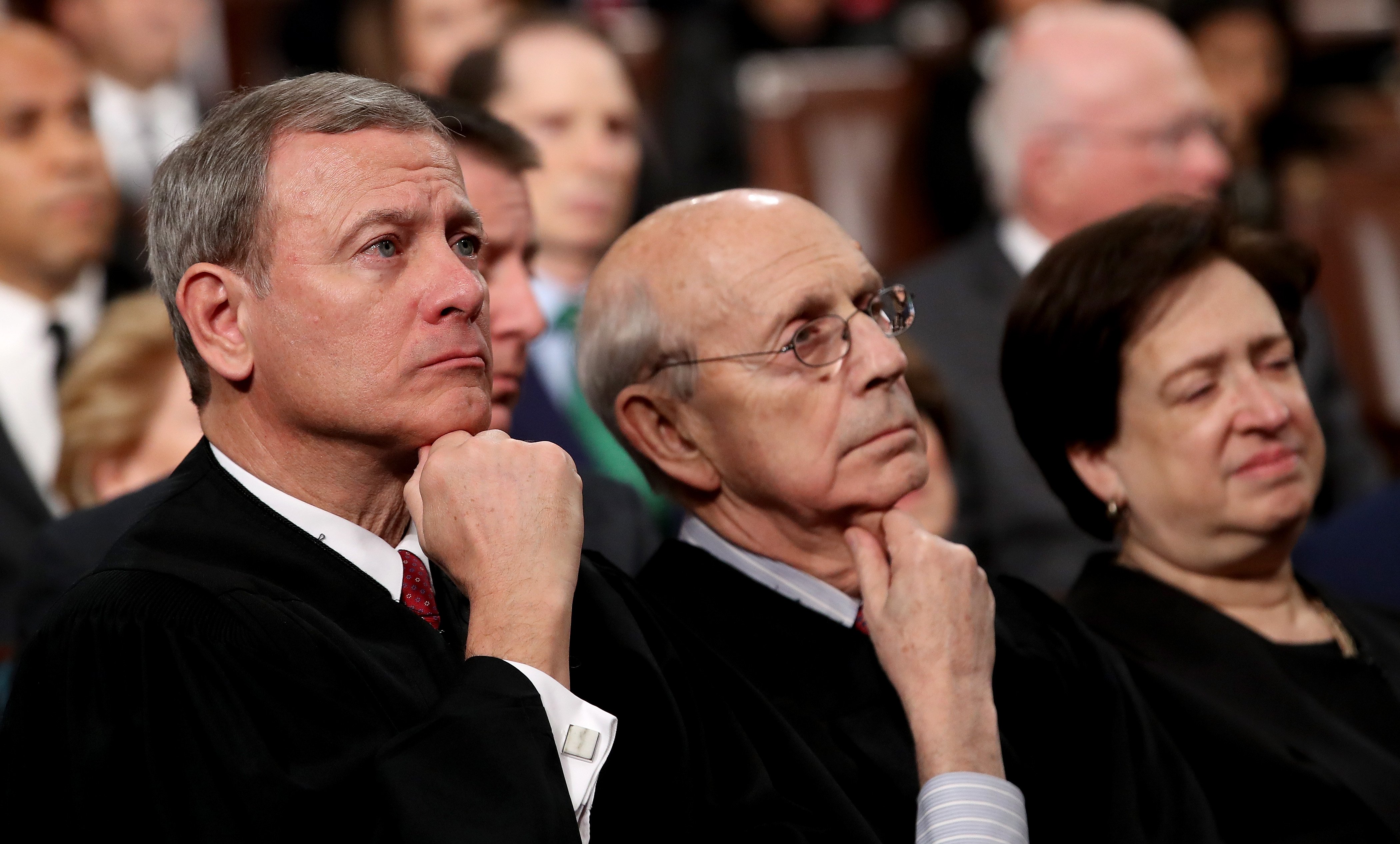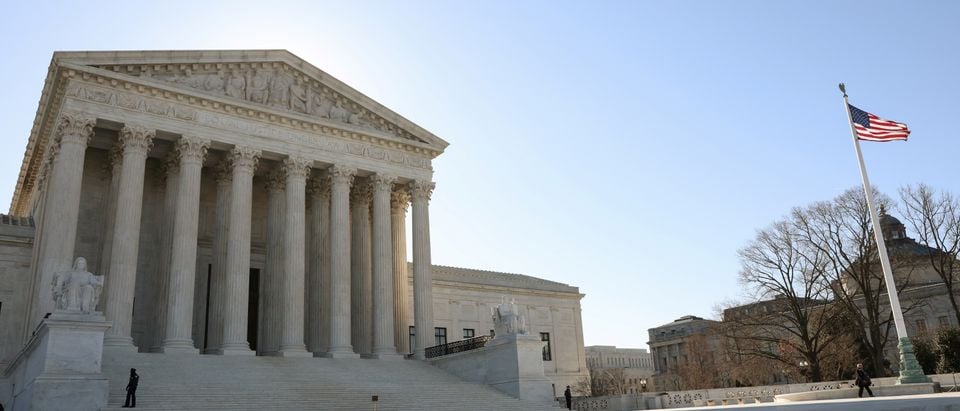Though few institutions in public life are as removed from internet meme culture as the U.S. Supreme Court, a cutting rejoinder popular in social media made an appearance during a Wednesday case about an age discrimination statute.
Chief Justice John Roberts wondered if the phrase “OK, boomer,” popular among young people as a dig at baby boomers, might be enough to prove actionable bias against older workers. He expressed concerns that such an expansive theory would chill speech.
“The hiring person is younger and says, you know, ‘OK, boomer’ once to the applicant,” Roberts said, to laughter in the courtroom. “Is that actionable?”
“I’m just wondering if your position is going to become just a regulation of speech in the workplace,” the chief justice added.
Roberts, born in 1955, is himself a baby boomer and will turn 65 later this month. (RELATED: Supreme Court Justices Appear Skeptical Of ‘Bridgegate’ Convictions)

Chief Justice John Roberts, Justice Stephen Breyer and Justice Elena Kagan are pictured on Jan. 30, 2018. (Win McNamee/Getty Images)
Wednesday’s dispute involves a clinical pharmacist called Dr. Noris Babb, who works for the U.S. Department of Veterans Affairs. Babb sued the VA in July 2014 under the Age Discrimination in Employment Act (ADEA), alleging she was denied promotions, training and benefits because of her age. A federal trial judge ruled against Babb, and the 11th U.S. Circuit Court of Appeals affirmed.
The ADEA provides that employment decisions in the federal government “shall be made free from any discrimination based on age.” The key words in Wednesday’s case are “based on.” The justices will decide whether Babb must show age was simply a factor in the alleged discrimination or if it was the “but-for” cause.
“But-for” causation is a more exacting legal test. The Department of Justice is representing the VA in court and argues a “but-for” standard is required in lawsuits like this one.
Roman Martinez, who represented Babb before the Supreme Court, said that in practice the administration’s position means the government could use age preferences in hiring.
“The government, in this case, apparently believes it’s perfectly lawful for federal agencies to apply ‘younger is better’ or ‘whiter is better’ hiring policies to individuals who can’t prove that they would have been hired but for those policies,” Martinez said. “That’s anti-textual and it’s wrong.”
Solicitor General Noel Francisco countered that relief from such a policy is available by other means, like civil service laws.
“I am quite confident that there is an avenue in which you could challenge a younger-is-better policy,” Francisco said.
Both Babb and the government agree that the higher “but-for” showing controls age bias lawsuits against private employers and state governments. That being so, some of the justices wondered why Congress would impose a higher standard on plaintiffs suing those actors but a lower standard for the federal government.
“The why question is still hanging,” Justice Brett Kavanaugh told Francisco.
Justice Stephen Breyer suggested it’s because the federal government needs to lead by example, in keeping with its historical position at the vanguard of civil rights.
“Who fought more than any group of people for freedom from discrimination?” Breyer asked. “Look at history. It was the federal government, and they should be holier than, OK?”
A decision in the case, No. 18-882 Babb v. Wilkie, is expected by June.
All content created by the Daily Caller News Foundation, an independent and nonpartisan newswire service, is available without charge to any legitimate news publisher that can provide a large audience. All republished articles must include our logo, our reporter’s byline and their DCNF affiliation. For any questions about our guidelines or partnering with us, please contact licensing@dailycallernewsfoundation.org.


